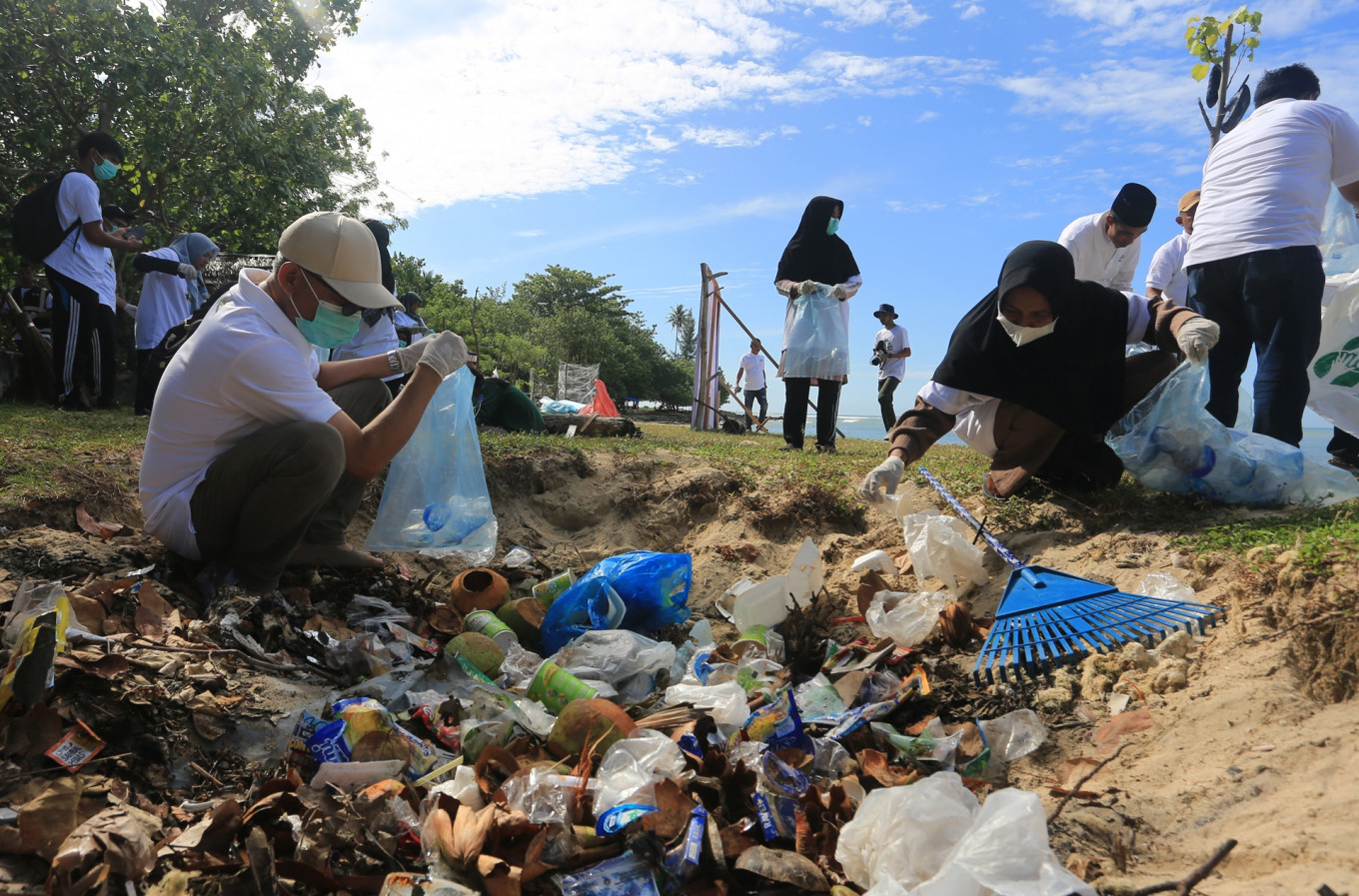Popular Reads
Top Results
Can't find what you're looking for?
View all search resultsPopular Reads
Top Results
Can't find what you're looking for?
View all search resultsNo more plastic promises
It is upsetting that the government has once again prioritized short-term economic achievements from potential money coming from the plastic industry’s investment in the country.
Change text size
Gift Premium Articles
to Anyone
T
he world exhaled a sign of disappointment when 11 days of negotiation in Geneva, Switzerland, ended in a failure to produce the first legally-binding global treaty that would have served as a guideline for countries to tackle plastic pollution.
Disagreement between the group of countries higher with ambitions to curb plastic pollution by curbing production and fossil fuel-producer countries who wanted the deal to focus only on waste management was so wide that informal talks outside the negotiation room failed to lead to any compromise for the agreement.
But the bigger disappointment, especially for Indonesians, was the stance shown by the government throughout and after the Geneva negotiations earlier this month.
Environmentalists have been pressuring the government’s delegation in Geneva to prioritize the health of the people by committing to cut down plastic production. They argued that cutting down plastics in production processes was the only way to stop people from consuming an ATM card's worth of small plastic particles every month, which add sharply increases the risk of illnesses, including cancers.
But the Indonesian delegation dismissed the possibility of restricting plastic production, citing the current National Medium-Term Development Plan (RPJMN) that prioritizes the plastic industry in order to boost investment.
Instead, the government representatives claimed they would focus on fulfilling the national target to process all 10 million tonnes of plastic waste generated across the country, as six of 10 plastic waste items produced in Indonesia are left untreated and left in the environment as waste, releasing microplastics that pollute the ground and water and are later ingested by people.
After the Geneva meeting wrapped up, Environment Minister Hanif Faisol Nurofiq pledged to take “concrete, measurable and inclusive” measures to solve the country’s plastic waste issue. He also asked for up to US$21 billion investment that would be disbursed to build waste disposal and processing sites to support the so-called circular economy.
These are weak commitments from the government as the world only recycles less than 10 percent of plastic waste, less than 1 percent of which is recycled twice. Most of the plastics used by people end up in the environment, floating for decades on the ocean or buried on the ground before decomposing many centuries later.
Recycling and the circular economy has turned into greenwashing jargon often used by industries and Western countries to conceal the bad impacts of plastics.
It is upsetting that the government has once again prioritized short-term economic achievements from potential money coming from the plastic industry’s investment in the country, over long-term benefits such as people’s health.
We are not sure that the government is well aware that those short-term benefits are outweighed by the economic loss caused by health impacts from the plastic. Every year, the world suffers from US$1.5 trillion of health-related economic losses driven by ever-increasing plastic production, which is projected to reach 1.2 billion tonnes by 2060.
The government’s decision to stand on the side of the fossil fuel countries is also puzzling, since Indonesia is often disadvantaged by exports of plastic waste from those countries, which ends up burying villages. Countries that boast their recycling progress, such as Germany and the United States, often end up sending their waste to Global South countries that do not have the capacity to treat that hazardous waste.
The Geneva talks, as well as days coming after, should be seen by the government as a moment to take initiative to defend their people and fulfill their rights to be healthy and live in a safe environment.
On a larger scale, it is also time for President Prabowo Subianto’s administration to stand up and make Indonesia a leader among countries harmed by plastics. Isn’t it the President’s vision to make Indonesia big on the international stage again?
In a world full of plastic, we need a serious move to lessen the catastrophic impacts of the polymer. We do not need any more plastic solutions.











